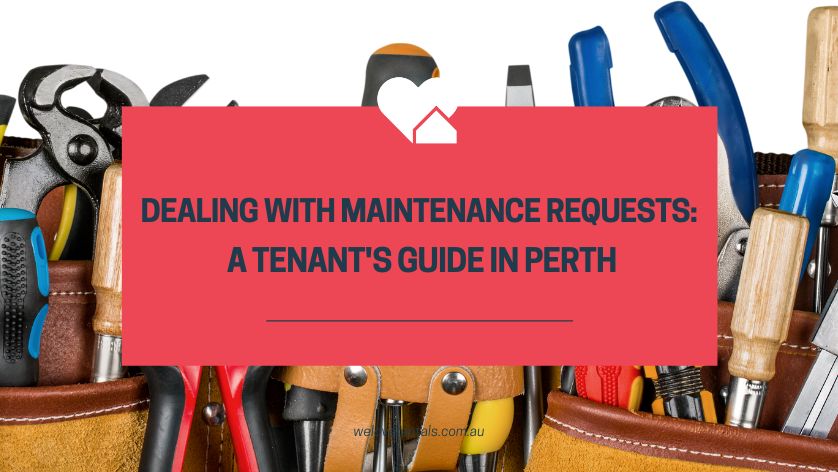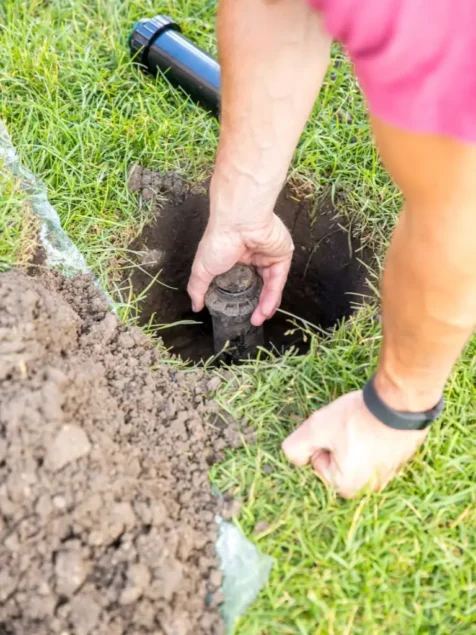
Rental Property Maintenance & Repairs – Who’s Responsible?
If you’ve found this blog post, you may be a tenant looking for help when asking your landlord or property manager for maintenance or repairs. We also understand the hesitancy with the tight rental market.
Or maybe you are unsure of your own maintenance obligations.
Either way, these practical tips from our property management team will help you understand the rules and help you navigate the ‘grey areas’.

Asking Your Landlord for Repairs or Maintenance — The Do’s and Don’ts
If repairs or maintenance are needed at a rental, delays can be inconvenient and stressful for tenants.
From a landlord’s point of view, repair and maintenance requests are usually unexpected. Even with the best of intentions, repairs can often take time, especially with difficulties due to busy tradespeople.
Clear communication, understanding the rules, and genuine cooperation, can help avoid unnecessary conflict!
Who is Responsible for What?
Sometimes opinions differ about who’s responsible for what. This summary shows usual responsibilities during a tenancy.
Your lease agreement can vary with these, where the RTA (Residential Tenancies Act) allows it.
Related: Residential Tenancies Act WA Explained.
Generally, landlords can take on tenant responsibilities by agreement. Tenants cannot be made to take on landlord responsibilities.
| Repair / Maintenance Issue | Landlord Responsible | Tenant Responsible |
| Lawn mowing, weeding, watering, light pruning, cleaning swimming pool | No, unless agreed in the lease* | Yes* |
| Pruning high branches, cleaning gutters, maintaining reticulation | Yes | No |
| Cleaning, including appliances, air-conditioner filters, driveways
Rubbish removal |
No | Yes |
| Changing light bulbs/batteries | No, unless a ladder/electrician is necessary* | Yes* |
| Pest control | Yes | No |
| Repairs to locks, appliances, chattels, and fixtures/fittings provided by landlord | Yes | No |
| Structural repairs | Yes | No |
| Plumbing repairs | Yes | No |
| Electrical repairs | Yes | No |
Where tenants or their guests cause damage or an infestation, they may become responsible for ‘landlord’ items.
For more information check the WA government Tenant Guide..
What Tenants Can Do
Agencies usually provide processes for requesting repairs and maintenance. It is important to use they suggested way of reporting repair or maintenance issues, but always include an email. This provides a written record, including time/date so everyone is aware of your reporting of issues. Always:
- report damage ASAP — delays can cause further damage, and you become responsible for that cost
- be reasonable and courteous.
If a matter is classified ESSENTIAL or URGENT by the RTA, and you can’t get a response within the required time, you may be entitled to arrange repairs yourself.
Before doing this:
- make every effort to contact the agent/landlord
- double-check the repair qualifies as essential/urgent, and which timeframe applies
- check the agency website for after-hours numbers/preferred tradespeople — only qualified, insured people can carry out repairs.
ESSENTIAL services (24-hour response) include:
- water/hot water
- wastewater/sewerage
- gas
- electricity
- a refrigerator, where provided by the landlord.
Other URGENT repairs (48-hour response) are anything likely to cause:
- property damage
- injury
- undue hardship/inconvenience.
Remember- if repairs aren’t essential or urgent, you may not be reimbursed!
Consumer Protection provides more detailed explanations.
NOTE: Landlords should confirm they are arranging repairs within 24 or 48 hours but are not expected to complete work in those time-frames.
What Not to Do as a Tenant
For the best results, don’t:
- call your agency/landlord after hours for non-urgent matters
- use disrespectful language
- make it difficult for tradespeople to access the property
- employ trades (or do work yourself):
- without approaching the landlord
- where repairs are not urgent/essential
- employ anyone unqualified, uninsured, or over-priced.
When You Can’t Agree About Routine Repairs/Maintenance
Landlords who don’t carry out routine repairs that are their responsibility within a reasonable time, may be in breach of the lease.
You cannot however arrange repairs yourself for maintenance that is not urgent or essential.
Communicate the problem and negotiate reasonably.
If this fails, you can:
- write a letter
- issue a breach notice (Form 23).
- seek conciliation from Consumer Protection.
- seek an order from the Magistrates Court.
How Can I Get the Best Result?
Most landlords want their property cared for — poorly maintained properties just lose value.
However, there are some circumstances where the tenant is responsible.
Talk to your property manager or Consumer Protection, and read your lease carefully, to be clear about your rights.
Our experienced property managers at We Love Rentals may be able to help. We also have past blogs that may help you!
Why not email us or call (08) 6254 6300 for friendly, professional advice.

